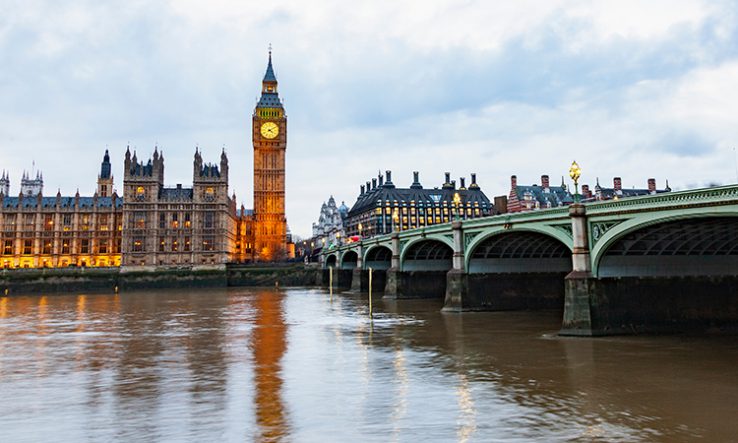
Image: Melinda Nagy, via Shutterstock
Department for Education fuels debate over in-person education with latest Covid-19 guidance for universities
The government says it expects face-to-face teaching to continue in English universities during the national lockdown that is due to commence on 5 November, provided it can be done in a “Covid-secure way”.
The insistence on face-to-face contact as the preferred option puts the Department for Education at loggerheads with the University and College Union, which has demanded a full shift to online teaching
According to the department’s latest guidance for universities, published on 3 November—just two days before the start of lockdown—universities should work with local public health teams to implement an “appropriate balance of online and in-person teaching”, which should be based on an “overall assessment of the public health risks, including to the mental health of students and the status of local outbreaks”.
“We would expect face-to-face teaching to continue under the new restrictions where providers are able to do so in a Covid-secure way,” the guidance states. “If a provider decides to move to increased online learning, they must continue to comply with registration conditions relating to quality and standards.”
Julia Buckingham, president of Universities UK and vice-chancellor of Brunel University London, said the guidance provided “much-needed clarity” on the lockdown restrictions. “Students and young people suffered enormously from reduced social contact and disruption during the first national lockdown, so it is even more important that they can get on with their education during the period of enhanced restrictions starting this week,” she said.
“We welcome both the government’s confirmation that it does not want or expect a transition to full online learning, as well as their support for the blended approach being taken by the sector.”
Buckingham said that institutions would “continue offering some face-to-face learning and support where it is possible to do so in a safe, physically distanced way, which we believe is important for the mental, emotional and educational wellbeing of students”.
Yesterday, universities minister Michelle Donelan wrote to university leaders to say that the government does “not want or expect to see a transition to full online learning during the new national restrictions”, as this could “jeopardise the learning that students receive, as well as risk their mental health and wellbeing”.
But in another letter to universities, sent on 3 November, University and College Union general secretary Jo Grady said vice-chancellors “should consider moving to increased levels of online learning where possible”.
In a statement published alongside the letter, Grady said: “Universities must not risk the health and safety of staff and students by allowing non-essential in-person activities to continue. Reducing the amount of in-person teaching and travel to and from campus will minimise the spread of Covid-19 and keep people as safe as possible.”
Elsewhere, the new guidance states that the government expects providers to ensure that they “continue to deliver courses which are fit for purpose and help students progress their qualifications”, and “where universities wish to charge maximum fees, we expect the quality, quantity and accessibility of provision to be maintained”.
In addition, staff and students are now advised to wear face coverings in “all higher education learning environments”, provided that doing so does not affect teaching and learning. Previously, the department had advised that face coverings should only be worn as an “additional risk mitigation measure” in areas where social distancing was difficult to maintain, such as corridors and communal areas.
Study spaces such as libraries should remain open to both students and staff, the guidance states, while researchers and research students “will be able to continue in-person research activities if the research work cannot reasonably be conducted from home”. Research should be carried out from home where possible, and work with participants should be rescheduled if it is not urgent.
England is set to enter its second national lockdown from Thursday until 2 December. Under the rules, people may only leave home for a small number of reasons, one of which is ‘education’.
Buckingham acknowledged that it was “a tough time for students” but urged them to “follow the government’s guidance and remain where they are for the duration of the new national restrictions”. She added that Universities UK was awaiting further guidance from the government on “the possible rollout of mass testing and plans for students to return home at Christmas”.
But Daniel Zeichner, Labour MP for Cambridge and co-chair of the All-Party Parliamentary Group for Universities, told Research Professional News: “While the latest advice is welcome, it really only confirms the current situation, and universities and students will soon be facing difficult choices as the end of term approaches.
“From the beginning, the problem has been that the government has been behind the curve and has waited until highly predictable events have taken place and then reacted. It would seem that for universities and students facing Christmas, the plan is, as usual, that there is no plan.”